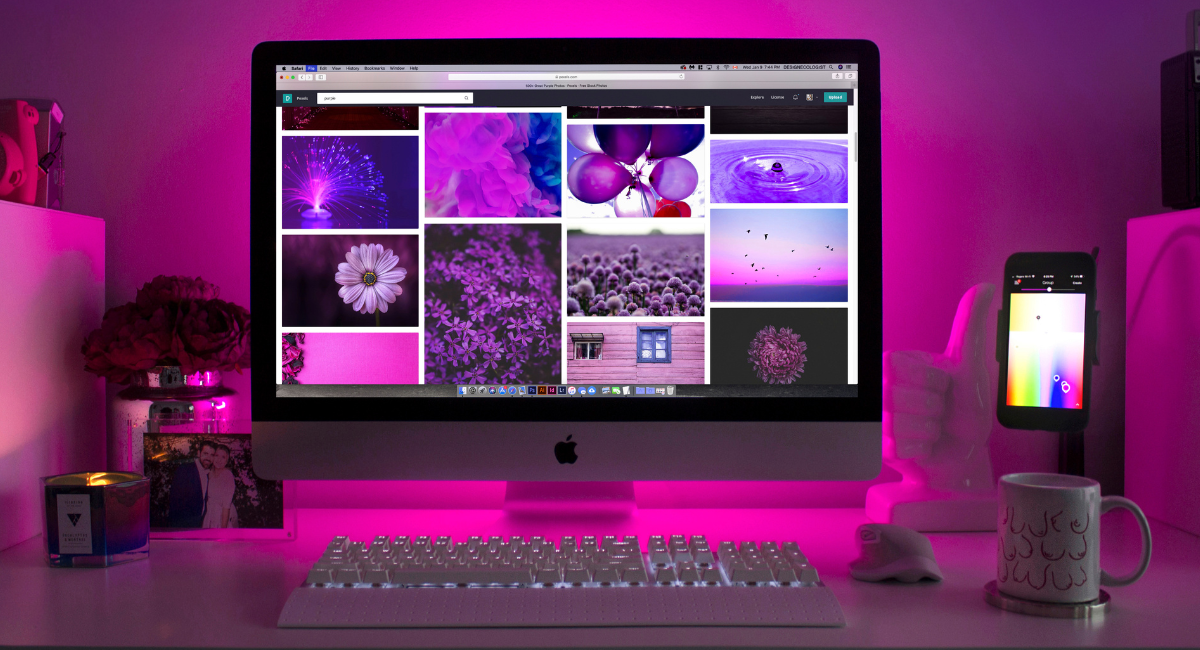Introduction to Social Media and its Popularity
The Impact of Social Media
Welcome to the captivating world of social media, where virtual connections have become an integral part of our everyday lives. From sharing moments with friends and family to discovering new interests and staying updated on current events, social media platforms have undeniably transformed the way we interact and communicate. With billions of active users worldwide, it’s no wonder that these platforms have gained immense popularity in a relatively short span of time.
But as with any powerful tool, there are hidden dangers lurking beneath the surface. While social media has its fair share of positive effects on mental health, we cannot ignore the negative impact it can have as well. In this eye-opening blog post, we will delve into both sides of the coin and unveil the hidden dangers that social media poses to our mental well-being.
So buckle up and get ready for an insightful journey through cyberspace as we explore how social media influences our mental health – from cyberbullying to addiction – and discover practical tips for maintaining a healthy relationship with these digital realms. It’s time to unlock the secrets behind this modern phenomenon!
The Positive Effects of Social Media on Mental Health
The Impact of Social Media
Social media has undeniably become a pervasive presence in our lives, with billions of people around the world using platforms like Facebook, Instagram, and Twitter to connect and share. While it’s easy to focus on the negative aspects of social media, such as cyberbullying and addiction, it’s important to also acknowledge its positive effects on mental health.
One significant benefit is the ability to stay connected with friends and family. Social media allows us to maintain relationships across distances and time zones, providing a sense of belonging and support. Whether it’s sharing photos or sending messages, these interactions can alleviate feelings of isolation and promote overall well-being.
Additionally, social media offers an unprecedented platform for self-expression. Through posts, blogs, or videos, individuals can showcase their talents or perspectives while receiving validation from others. This recognition can boost self-esteem and confidence as we receive feedback from peers who appreciate our uniqueness.
Moreover, social media serves as an outlet for inspiration and motivation. By following accounts related to personal interests or hobbies such as fitness or artistry, users can access a constant stream of uplifting content that promotes positivity. This exposure to inspirational stories or creative endeavors has been shown to enhance mood and foster a sense of possibility within ourselves.
Furthermore, social media provides opportunities for education & awareness by enabling discussions around mental health issues like anxiety & depression.
It helps in breaking down stigmas surrounding mental illnesses by allowing individuals dealing with similar challenges to find solace through online communities that offer support & understanding.
Increasingly, social networking platforms are becoming spaces where therapists, counselors,& organizations disseminate valuable information about mental wellness creating greater accessibility& awareness regarding treatment options available.
By acknowledging the positive impact that social media can have on mental health,it becomes clear that this powerful tool should not be dismissed completely.
Rather, it’s crucial that we strive to maintain a healthy relationship with these platforms.
By balancing offline interactions, prioritizing self-care, and being mindful of how social media affects us, we can maximize its benefits while minimizing the potential harm.
The Negative Effects of Social Media on Mental Health
The Impact of Social Media
The Negative Effects of Social Media on Mental Health
Social media has undoubtedly become a prominent part of our daily lives, connecting us with friends and family around the world. However, it’s important to recognize that this constant exposure to virtual interactions can have detrimental effects on our mental health.
One major issue is cyberbullying and online harassment. Behind the anonymity of a computer screen, individuals feel empowered to unleash their hostility on others. The consequences can be severe, leading to feelings of anxiety, depression, and even suicidal thoughts.
Another negative impact stems from the comparison culture fostered by social media platforms. As we scroll through perfectly curated feeds filled with glamorous vacations and flawless selfies, it’s easy to fall into the trap of comparing ourselves unfavorably. This constant comparison erodes self-esteem and contributes to increased levels of stress and dissatisfaction.
Moreover, addiction to social media is a growing concern in today’s society. The endless scrolling and dopamine hit from likes and comments can create an unhealthy reliance on validation from others. This addiction not only affects productivity but also isolates individuals from real-life interactions.
In order to maintain a healthy relationship with social media, it’s crucial for individuals to set boundaries by limiting screen time and prioritizing offline activities such as spending quality time with loved ones or pursuing hobbies that bring joy.
While there are undoubtedly negative aspects associated with social media use, it’s important not to demonize these platforms entirely. By being aware of its potential pitfalls and actively taking steps towards maintaining balance in our digital lives, we can mitigate some of the harmful effects while still enjoying the benefits that social media brings about
Cyberbullying and Online Harassment
The Impact of Social Media
The dark side of social media emerges when cyberbullying and online harassment come into play. With the anonymity that the digital world provides, individuals feel empowered to unleash their cruelty on others from behind a screen. It is a heartbreaking reality that many people face every day.
Cyberbullying can take various forms, such as spreading rumors, sharing private information without consent, or sending hurtful messages. The impact on mental health can be devastating – victims often experience feelings of fear, anxiety, and depression. Constant exposure to negative comments and attacks can erode self-esteem and confidence.
Online harassment goes beyond just bullying; it involves sustained personal attacks targeted at an individual. Trolls lurk in comment sections seeking opportunities to belittle and demean others for their own amusement or satisfaction. This constant barrage of negativity can lead to emotional distress and even physical harm in extreme cases.
Social media platforms have recognized the seriousness of this issue and are implementing measures to combat cyberbullying and online harassment. However, more needs to be done collectively by users themselves – we must create a culture where kindness prevails over hate.
Remember: your words have power, both offline and online. Choose them wisely!”
Comparison and FOMO – How Social Media Affects Self-esteem
Comparison and FOMO (Fear of Missing Out) – How Social Media Affects Self-esteem
Scrolling through your social media feed, you’re bombarded with images of seemingly perfect lives. Your friends traveling to exotic destinations, attending glamorous parties, or showing off their “picture-perfect” bodies. It’s hard not to compare yourself and feel a twinge of envy.
Social media has become a breeding ground for comparison culture. We constantly measure our own lives against the highlight reels we see online. This can have detrimental effects on our self-esteem and mental well-being.
When we constantly compare ourselves to others, it’s easy to fall into the trap of feeling inadequate or not good enough. We start questioning our own worth based on how many likes or followers we have compared to others. The need for validation becomes overwhelming as we seek external approval rather than focusing on building true self-confidence.
FOMO also plays a significant role in this equation. Seeing others having fun without us can trigger feelings of loneliness and exclusion. We fear missing out on experiences that seem so attainable for everyone else but somehow elusive for us.
It’s important to remember that what people share online is often just a curated version of their lives – carefully selected moments they want the world to see. Behind those filtered photos lie real-life struggles, insecurities, and imperfections that aren’t always showcased.
To combat the negative impacts of comparison and FOMO, it’s essential to cultivate self-awareness and consciously limit our exposure to triggering content if needed. Focus on embracing your unique journey instead of comparing it with someone else’s highlight reel.
Remember that your worth isn’t determined by social media metrics; it lies within you and your individuality outside the digital realm!
Stay tuned for more insightful sections exploring other aspects related to social media’s impact on mental health!
Addiction to Social Media and its Consequences
Addiction to social media has become a prevalent issue in today’s technology-driven society. With the constant availability of smartphones and the allure of social networking platforms, it is easy to see why many individuals find themselves hooked on scrolling through their feeds for hours on end.
One of the consequences of this addiction is a significant decrease in productivity. Instead of focusing on important tasks or engaging in real-life interactions, people often find themselves mindlessly refreshing their newsfeeds or endlessly browsing through photos and videos. This can lead to missed deadlines, decreased work performance, and strained relationships.
Another consequence is the negative impact on mental health. Constant exposure to carefully curated posts showcasing other people’s seemingly perfect lives can leave individuals feeling inadequate or envious. This comparison culture fosters feelings of low self-esteem and can contribute to anxiety and depression.
Furthermore, addiction to social media can disrupt sleep patterns. Many individuals are guilty of staying up late at night scrolling through their timelines instead of getting much-needed rest. The blue light emitted by screens also interferes with melatonin production, making it harder for users to fall asleep.
Social media addiction may also contribute to feelings of isolation despite its promise of connection. Spending excessive amounts of time online can detract from face-to-face interactions and genuine human connections that are essential for overall well-being.
It is crucial for individuals struggling with social media addiction to recognize the signs and take steps toward reducing their usage. Setting boundaries such as implementing screen-free times or limiting daily usage can help regain control over one’s digital life.
Seeking support from friends, family, or professionals may be necessary when trying to break free from this addictive cycle. Engaging in offline activities like exercising, reading books, or pursuing hobbies should replace excessive time spent online.
In conclusion (as per your request), while social media undoubtedly has its benefits, it is vital that we use these platforms responsibly so as not to succumb to an unhealthy dependence that jeopardizes our mental health and overall well-being.
Tips for Maintaining a Healthy Relationship with Social Media
In today’s digital age, social media has become an integral part of our lives. It allows us to connect with friends and family, share our thoughts and experiences, and stay updated on the latest news and trends. However, too much time spent on social media can have a negative impact on our mental health. So how can we maintain a healthy relationship with social media?
It’s important to set boundaries for yourself. Limit the amount of time you spend scrolling through your feeds by setting specific time limits or using apps that track your usage. This will help prevent mindless scrolling and ensure that you’re using social media in a more intentional way.
Be mindful of the content you consume. Follow accounts that inspire and uplift you rather than those that make you feel inadequate or trigger negative emotions. Unfollow or mute accounts that don’t align with your values or contribute positively to your well-being.
Next, practice self-care offline as well. Engage in activities that bring you joy and fulfillment outside of social media such as spending time outdoors, pursuing hobbies, or connecting face-to-face with loved ones.
Additionally, remember that what is portrayed on social media isn’t always reality. People typically only showcase their highlight reel while hiding their struggles or flaws. Keep this in mind when comparing yourself to others online.
Be mindful of your own behavior on social media as well. Avoid engaging in arguments or spreading negativity online as this can also take a toll on your mental health.
By implementing these tips into your daily routine, you’ll be able to maintain a healthier relationship with social media and prioritize your overall well-being.
The Importance of Balancing Online and Offline Interactions
The Importance of Balancing Online and Offline Interactions
In today’s digital age, it’s easy to get caught up in the world of social media. We find ourselves scrolling endlessly through feeds, liking posts, and commenting on photos. While online interactions can be fun and engaging, it’s crucial to remember the importance of balancing our time spent online with real-life interactions.
When we spend too much time glued to our screens, we risk missing out on meaningful face-to-face connections. It’s essential to prioritize spending quality time with friends and family in person. Engaging in offline activities allows us to fully immerse ourselves in the present moment and foster deeper relationships.
Additionally, maintaining a healthy balance between online and offline interactions can help protect our mental well-being. Constantly comparing ourselves to others’ highlight reels on social media can lead to feelings of inadequacy or low self-esteem. By taking breaks from social media and focusing on real-life experiences, we can cultivate a stronger sense of self-worth.
Furthermore, balancing our online presence with offline activities helps reduce stress levels. The constant pressure to be constantly available or responsive on social media platforms can take a toll on our mental health. Stepping away from screens allows us to recharge mentally and physically.
Finding alternative ways to spend our time offline opens up opportunities for personal growth and development. Whether it’s pursuing hobbies or engaging in physical exercise, these activities contribute positively towards overall well-being.
Finding a healthy balance between online engagement and offline interactions is vital for maintaining good mental health. Prioritizing face-to-face connections over virtual ones fosters deeper relationships while protecting against comparison-driven self-esteem issues caused by excessive use of social media platforms.
Conclusion
In today’s digital age, social media has become an integral part of our lives. It offers numerous benefits and opportunities for communication, connection, and self-expression. However, it is important to recognize the hidden dangers that come with excessive use and misuse of social media.
While social media can have positive effects on mental health by fostering a sense of belonging and providing support networks, there are also negative impacts to be aware of. Cyberbullying and online harassment can lead to serious emotional distress and even contribute to mental health issues such as anxiety or depression. Additionally, constant comparisons fueled by social media can negatively affect self-esteem and increase feelings of inadequacy.
Another concerning aspect is the addiction potential of social media platforms. Spending excessive amounts of time scrolling through feeds or constantly seeking validation in the form of likes or comments can have detrimental effects on mental well-being.
To maintain a healthy relationship with social media, it is crucial to set boundaries and practice moderation. Limiting screen time, engaging in offline activities, nurturing face-to-face relationships, and focusing on self-care are all important steps toward achieving balance.
Remember that authenticity matters more than validation from strangers online. Prioritize your mental health above gaining popularity or fitting into societal expectations perpetuated by social media platforms.
By being mindful of how we engage with social media platforms, we can harness their positive aspects while protecting ourselves from the hidden dangers they may pose to our mental well-being.
So take control over your digital life! Use social media wisely – connect meaningfully with others but do not let it consume you entirely – strike a balance between your online interactions and real-life experiences!
After all…life happens beyond the screens!
For Digital Marketing Services Visit Advanz Digital Marketing Website





